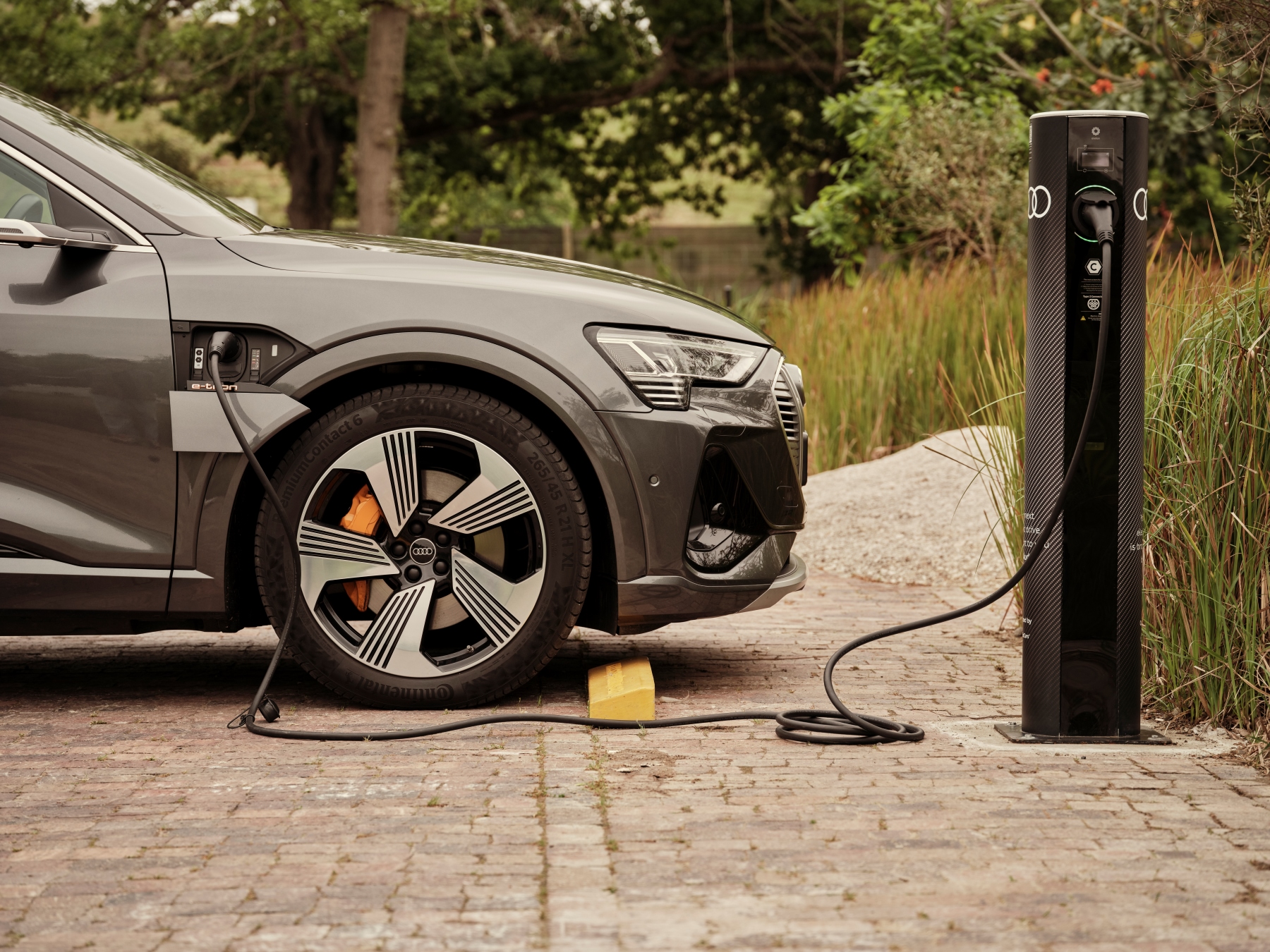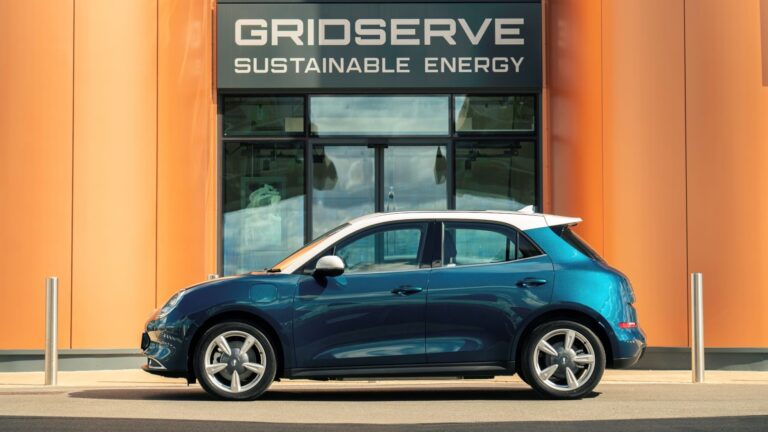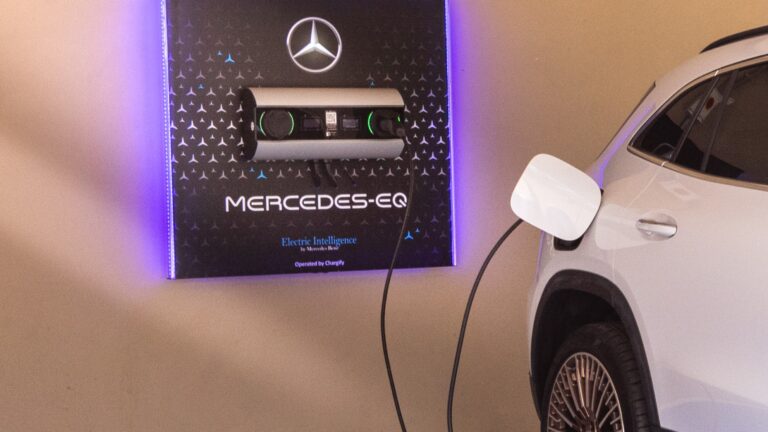- 021 928 8182

EV Ownership could cost you less, but there are very real liitations for running a car in South Africa. We address the issues about recharging, Eskom and maintenance.
By Lance Branquinho
If EVs have so many benefits, why aren’t they widely adopted? It’s a good question, especially for South African car buyers, where the issues around owning an EV are more complex than in other markets due to the Eskom power generation crisis.
During the last few years, there has been an enormous increase in the number and quality of EVs. For many decades, car companies refused to believe there was a true market for EVs and didn’t bother to invest or develop any. The irony is that internationally, EVs have been part of the mainstream car market for a long time.
Electric Vehicles Aren't
New
A century ago, battery-powered vehicles were the future. Some of the world’s best car brands, like Bugatti, had developed battery-powered cars before the Second World War. But why didn’t the EV cars of the 1920s become a dominant standard? The reason is relatable to any South African in 2024: electricity generation and distribution issues.
Although those first EVs worked as well as any rival petrol car, they were a problem to recharge. Global electrification, especially outside of cities, was primitive during the first third of the 20th century. And when the first EVs were available, fuel stations were being rapidly constructed and commissioned everywhere, servicing the demand and adventurous driving spirit of first-time car owners.
The world is a very different place in 2024, compared to 1924, with grid power being available nearly everywhere a road might route to. Social demands, driven by political incentives and punitive legislation, have triggered a new wave of demand for EVs. As governments attempt to manage the transition to more electric energy use, especially for transport, they are making operating a petrol or diesel car more expensive, with associated emissions taxation. That has triggered enhanced R&D efforts by automotive manufacturers, populating the current car market with more EVs than ever before.
The Improvements Are Political
It’s important to understand that many EVs brought to market over the last few years are ‘compliance’ cars. What does that mean? They are vehicles developed to appease legislation and public image, proving that car companies are trying to develop and manufacture zero-emissions cars.
The issue with EVs as compliance cars is that many car companies don’t – and can’t – build too many of them. The criticality of materials, technology, and battery supply shortage means that several available EV models are potential loss leaders for car companies, costing more to produce than they can sell for. But as the industry has scaled, especially since the pandemic, there is a second wave of EVs, which aren’t compliance cars.
If you wanted to buy an EV in South Africa three years ago, your choices were either a minimal range compact EV, from BMW (the i3 and Mini E), or an expensive SUV. But the market is diversifying, with more body styles, vehicle sizes and battery options for South African EV buyers.
South Africa’s pioneering EVs were the BMW i3 and Nissan Leaf. Both very futuristic designs, especially the i3 with its carbon-fibre structure, but also very limited in range. For buyers who want to own an EV capable of inter-provincial travel, the only options have been costly SUVs and performance cars from Audi, BMW, Porsche and Mercedes-Benz.
The Arrival Of Better EVs

Cars like the e-Tron GT Quattro, IX, Taycan, and EQS were the first EVs to bring true 300km+ range to the local market, but at very premium prices, touching R1.8m and often pricing deep in the R2m margin with options. What has happened for the South African EV market into 2024, is the availability of smaller and better EVs, with extended range.
Volvo has created a new value offering with its XC40 P6 Recharge Plus, priced at just over R1m and offering real-world range of 400km. Volvo’s advantage is its parent company, Geely, which allows the Swedish brand to combine its Scandinavian design and safety legacy with the latest Chinese-developed battery technology.
The dominant German brands have responded to Volvo’s XC40 EVs with EVs of similar size. There’s the BMW iX1 xDrive30 xLine, an EV version of the popular X1 crossover, which is priced at similar levels to the Volvo and delivers that 400km range that will enable easier long-distance travel. Mercedes-Benz’s more compact EVs all carry the ‘250’ badging.
The presence of compact crossover EVs, from BMW, Mercedes-Benz and Volvo have created more reasonable options for South African buyers interested in an EV driving and ownership experience. But what about genuinely affordable EVs with good range?
Chinese chemistry and power unit companies dominate the battery supply chain. Its why China is the world’s biggest market for EVs, and also produces more EVs, than any of the legacy car-making countries like the United States or Germany.
Are Chinese EVs Any Good?
After arriving in the local market in the mid- to late 2000s, Chinese car brands were long ridiculed, with good reason. The cars and bakkies were of inferior quality, with antiquated designs. But those Chinese car companies that have remained committed to South Africa are the quality ones. And their vehicles have improved dramatically over the last ten years – as witnessed by increased market share. That does beg the question: if Chinese cars are now accepted as part of the South African buyers’ decision-making, where are the affordable Chinese EVs? Well, they’re coming.
With Chinese brands now ranking among the top ten most popular car brands in South Africa, as measured by sales, the strategic commitment is real. And nobody can offer the mixture of affordability and features that Chinese car companies can with their EVs. The first affordable Chinese EV is from GWM, with its Ora sub-brand. Priced at R686 950, the Ora Cat is almost R100 000 cheaper than Mini’s SE EV and offers 420km of range.
Recharging and Load Shedding
In small European countries with generous EV incentives and great recharging infrastructure and distribution, range anxiety isn’t a thing. There is an enormous amount of EV recharge points across Europe. In Germany, for example, drivers can choose from 113 112 public EV charging points. South Africa? The target is to have 500 by yearend. Problematically, not many of them are powerful enough to recharge most of the current EVs in a short amount of time.
The ideal model of convenience, where your EV experience is as seamless as refuelling a petrol or diesel car, requires a mighty recharging station. Filling an average internal combustion car requires about five minutes of fuel flow. Recharging an EV? For most EVs in South Africa, you’ll need at least an hour and a half of charging from the highest-capacity charging stations, and those are few and far between.

But EVs have one advantage that petrol or diesel cars don’t? You can energize at home. The habit of plugging-in an EV overnight in your garage is easily achievable. It might not deliver much charging power, but that’s not as important because when your car is ‘resting’ overnight in the garage, it has ample hours to recharge while you are sleeping.
Overnight home charging is a big win for EV owners, but there are three potential issues that all EV drivers need to be aware of. The first is understanding the quality and distribution of high-capacity chargers in South Africa. The adventure or vacation road trip is an event with great legacy in South Africa. But be warned: many routes you’ll want to journey to idyllic rural getaway venues, or that coastal retreat, won’t feature high-capacity EV recharging. That means you need to be very confident of the power supply at the venue you’ll stay at and have the discipline to leave an EV ‘on-charge’ nearly all the time you are there.
The second issue with EVs and the South African home charging scenario is the question of apartment living. In Cape Town, many high-income individuals live in apartments along the Atlantic Seaboard and in the City Bowl. Running a power cord across the common parking area, from your apartment to an EV, will never be allowed by a body corporate. And many corporate bodies won’t be willing to invest in the cost or upgraded wiring infrastructure to install a dedicated EV charger.
Eskom is the third issue that should when considering EV ownership in South Africa. Several of South Africa’s best EV recharging stations are strategically located at shopping malls. That’s clever: you recharge while shopping, meeting friends’ socially at the local coffee shop, or remote working. But the issue is that although the mall will have back-up power to keep the lights on and coffee machine working during load shedding, it can’t power a recharger.
You could go to the mall for a recharge and have stage 4 or 6 load-shedding happen when you arrive. If your battery is nearly empty, you will have to spend many hours there, waiting for the power to return and that charger to start reenergizing your EV battery.
Cheaper to Maintain - But Watch the Tyres
EVs have many fewer working parts than a petrol or diesel car. There are no air filters, oil filters, fuel filters, or fluid lines to maintain or replace. And because of regenerative braking, you’ll rarely use the left pedal to slow down, which means brake pads and discs last a long time.
The maintenance burden for EVs is greatly reduced, but they are heavy. And because EV motors produce so much torque, tyre wear can be more severe from the moment the wheels start turning at low speed. Expect to get less tyre life from an EV. Still, that cost is easily offset and compensated for by the absence of regular mechanical engine and gearbox components servicing and replacement.
EVs can be cheaper to run than petrol or diesel cars, but the South African market lacks ownership incentives. There are significant tax rebates for buying and owning an EV in many European markets, Australia, and the United States. Some of these are even included as an immediate discount on purchase price when buying your new EV, avoiding the burden of administration involved in processing your EV incentives as part of a tax return.
For the immediate future, the South African government has not discussed or proposed any significant EV ownership incentives regarding either tax breaks or purchase price discounting.
For your online vehicle purchasing needs contact Auto Online on https://auto.online/contact/
